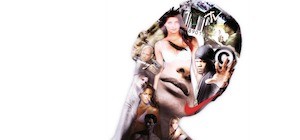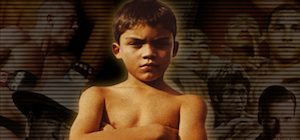Looking for ways to take on the presidential election in your classes?
Don’t miss these films on the politics of fear, race-baiting & tough-guy masculinity
If you’re an educator looking to engage your students in discussions about some of the major forces shaping the 2016 presidential race, we highly recommend the following MEF films.
Taken together, these films provide crucial insights into three of the most talked-about and potentially consequential story lines of the present campaign: the politics of fear and anxiety, the growing divide between white voters and everyone else, and the massive gender gap that’s developed within the white vote.
Given the potentially decisive impact of these political trends, we hope you’ll consider using these films in your classes to open up discussions about the high stakes of this election.
Tough Guise 2: Violence, Manhood & American Culture
|
|
Tough Guise 2, based on the work of cultural critic Jackson Katz, examines how progressive social movements have threatened traditional white male authority and unleashed a political backlash against feminism, multiculturalism, and so-called “political correctness.” The film provides crucial background for understanding the allure of Donald Trump’s tough-guy persona and the massive gender gap that’s opened up between white male and female voters. |
White Like Me: Race, Racism & White Privilege
|
|
White Like Me, based on the work of bestselling author Tim Wise, explores white attitudes and voting patterns since the Civil Rights movement. Digging deep into polling data, Wise argues that the political attitudes of large numbers of white voters have been shaped by a combination of unchecked privilege and deep-seated racial resentments. Along the way, the film sheds light on current polls showing a widening gap between the voting preferences of white people and people of color. |
Mean World Syndrome: Media Violence & the Cultivation of Fear
|
|
The Mean World Syndrome, based on the work of the late media scholar George Gerbner, offers fascinating insights into the politics of fear. The film surveys years of audience research showing that the more media people consume, the more likely they are to harbor irrational fears of violent crime, terrorism, and racial and ethnic minorities. It also shows how political leaders have exploited these fears, tapping into anxieties about immigration, urban crime, and Islam for electoral gain. |
The Purity Myth: The Virginity Movement’s War Against Women
|
|
The Purity Myth, based on the bestselling book by Jessica Valenti, looks at recent attempts by conservative political leaders to roll back women’s reproductive rights. In a wide-ranging analysis that moves from the abstinence movement to right-wing attacks on Planned Parenthood and Roe v. Wade, Valenti locates the resurgent movement to control women’s sexuality within the larger political backlash against feminism and women’s equality. |
The Empathy Gap: Masculinity & the Courage to Change
|
|
In The Empathy Gap, filmmaker Thomas Keith examines the personal and political fallout of toxic masculinity, arguing that regressive ideas about manhood short-circuit men’s ability to empathize with women. In one especially timely section of the film, Keith takes dead aim at the amped-up, hypermasculine image Donald Trump has cultivated over the years, and explores how the sexist attitudes he’s tapped into have made American politics hostile territory for women. |






